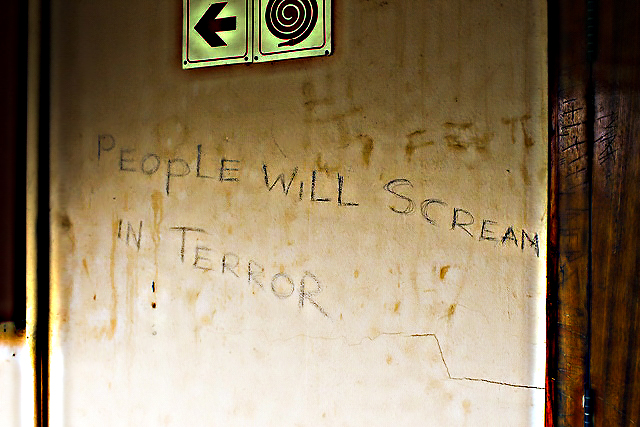
On 12 and 19 June, Grocott’s Mail and Health-e News’ collaborative documentary about what experts are calling the next Life Esidimeni, aired on eNCA’s current affairs show, Checkpoint. Split into two episodes, “The Writing on the Wall”, exposed the gruelling truth behind psychiatric care in the Eastern Cape.
From Tower Hospital in Fort Beaufort, to Grahamstown’s own Fort England, shocking similarities were highlighted between many provincial facilities. The reactions from local community members, as well as South Africans at large, was very positive.
The documentary’s producer, Bernadette Maguire stated, “We have had lots and lots of positive reactions so far, obviously there have been the detractors as well but that is to be expected.”
A former Fort England patient wrote to Grocott’s Mail;
“There is, as Checkpoint demonstrated, a veil of secrecy about these places. Since becoming a mental patient I have been subjected to doubtful treatment at FE. There is much to be done in this country to turn things around in favour of those whose voices are stifled, either by over-medication or other means. Of this latter, stigma and humiliation is the biggest factor; ask almost any outpatient of Fort England what their daily life is like and they will attest to mistreatment and ostracising at the hands of society.”
They further wrote:
“I have seen it with my own eyes; how long must it take before society realises that the mental hospital is not a place of care but a glorified concentration camp? Rehabilitation, as outlined in Checkpoint, is not high on the agenda of such places.”
In response to harrowing information about Tower, a former patient’s sister stated, “I really never knew situations were that bad.” “It hurt to see where my brother ended up in that pigsty concentration camp.”
Checkpoint showcased hidden camera footage from inside of Tower as well as countless photographs of the seclusion rooms.
Twitter was active with comments from across the country for both episodes. Citizens remain in shock over the horrific conditions patients are exposed to.
One user commented; “The cells that Nelson Mandela and the rest of the Rivonia trial prisoners were detained in on Robben Island, surely didn’t look anything like these seclusion cells”.
Another wrote; “I am glad this was brought to the public’s eye and I do hope that changes will be made and the Department of Health will take such matters into consideration. After all these patients are human and deserve to be treated right no matter what their condition is.”
Maguire added, “I hope that releasing this documentary will open people’s eyes to the way we need to change and revolutionise healthcare for psychiatric patients in this country. I think [the documentary has]put it squarely on the agenda and people are taking notice.”
“The new spokesperson for the department of health asked me why everyone was so scared of me. I said ‘Well I don’t really know, maybe they’re scared of the truth.’ ”
Meanwhile, information concerning the outcome of Health Ombudsman Malegapuru Makgoba’s investigation of Tower hospital is still under wraps.
At the time of publication, Tower whistleblower, Dr Kiran Sukeri, was unavailable for comment.
Grocott’s Mail will continue to investigate and report on the Eastern Cape’s mental healthcare crisis.
-The documentary is available for streaming on eNCA’s Youtube channel.


